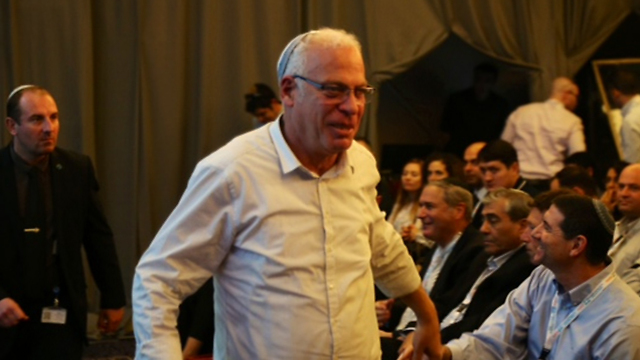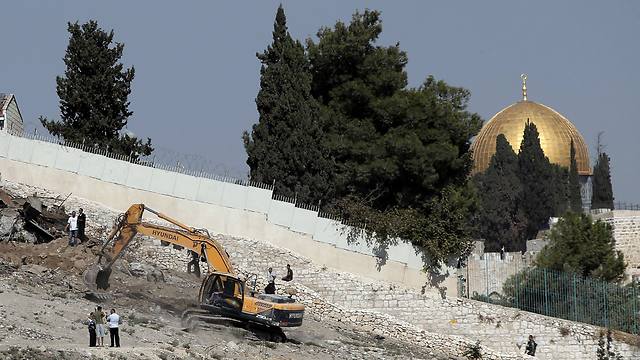
The Housing Ministry has prepared a nice going-away gift for Prime Minister Benjamin Netanyahu on the eve of his trip to Washington – plans to build more than 48,000 new housing units in the West Bank, and another 15,000 or so in East Jerusalem.
The building beyond the Green Line has been incorporated into the ministry's construction plans for other regions of the country – a total of around 279,000 new housing units. The list of communities and the number of housing units came to light during the course of discussions over the past few days between Housing Ministry and treasury officials, on the backdrop of the Housing Ministry's demand for significant budgetary supplements.
Related articles:
- Furtive finance of settlements a top Israeli election issue
Housing Minister Uri Ariel (Bayit Yehudi), who also serves as chairman of the Israel Land Authority, has refused thus far to present the agreement for the transfer of the Israel Defense Forces bases in the center of the country to the Negev to the Israel Land Council for final approval. In doing so, for all intents and purposes, he is holding the plan hostage to his budgetary demands. Sources in Ariel's bureau believe that by the time the parties meet again, next Tuesday, the treasury would have folded.

What we are dealing with here, in fact, is a dispute on two levels. On the one hand, it's an argument over money. Following the decision to bring forward the elections, the government has been operating in keeping with the 2014 budget; but Ariel is demanding sums that exceed the approved budget.
According to a February 16 letter from Housing Ministry Director General Shlomo Ben-Eliyahu to the Director General of the Prime Minister's Office, Harel Locker, the demands total more than 360 million shekels. One of the demands calls for an additional 30 million shekels for protective measures for settlers living in the heart of East Jerusalem's Arab neighborhoods.
Housing Ministry officials deny any link between the delay in approving the plan to move the IDF bases to the Negev and the ministry's financial demands, claiming that the two issues are unrelated and apolitical professional disputes.
However, those in the know outside the government are convinced there is something more to the story – that at play is an effort on the part of Ariel and others from Bayit Yehudi to delay the evacuation of the IDF bases in the center of the country so as to encourage Israelis to buy homes in the West Bank. Housing Ministry officials reject these allegations, claiming that they support the plan to move the IDF bases, but are also concerned with the finances of the ILA and its independence.
This leads us to the second level – the political aspect, which comes to light in the plans formulated by the Housing Ministry. One-sixth of the housing units planned for the coming years are in the territories, with a large number of units slated for construction in isolated settlements such as Ma'ale Amos (6,000 housing units), Bat Ayin (6,000) and Nahliel (3,500), or even settlements that have yet to be established, like Gva'ot (1,060) – a clear indication of the government's intentions vis-à-vis the settlement enterprise.
Construction plans for East Jerusalem also draw intense flak from around the world, including the United States. The Housing Ministry's plans include the building of 15 thousand housing units in Jerusalem, beyond the Green Line. I spoke to a senior government official, apolitical, about the plan.
"The lesson I have learned," he said, "is that the land of the state, its most precious asset, should not be entrusted to a sectoral party. A sectoral party cannot serve the interests of the country at large."
















